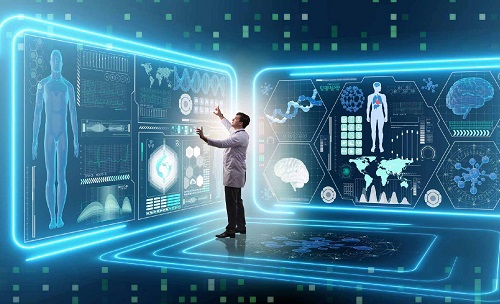The Rise of Automation and Artificial Intelligence
As technology continues to advance at an exponential rate, the way we work is also changing dramatically. Automation and artificial intelligence (AI) are no longer just buzzwords, but are now a reality in workplaces across the globe. These technologies are revolutionizing the way we work, making tasks more efficient, accurate, and cost-effective.
Impact on Jobs
One of the biggest concerns with the rise of automation and AI is the potential impact on jobs. Many fear that these technologies will eliminate the need for human workers, leading to widespread unemployment.
While it is true that some jobs may become obsolete as a result of automation and AI, many experts believe that these technologies will create new opportunities and lead to the creation of new types of jobs that we can’t even imagine yet. In fact, a recent study by McKinsey & Company found that while up to 375 million workers may need to switch jobs or acquire new skills by 2030 due to automation, the overall impact on jobs will likely be neutral or even positive.
Changes in the Workplace
Automation and AI are already changing the way we work in many industries. For example, in the manufacturing sector, robots are being used to perform repetitive tasks more quickly and accurately than human workers. In the healthcare industry, AI is being used to diagnose diseases and recommend treatment options with a level of accuracy that surpasses that of human doctors.
These technologies are also changing the way we collaborate and communicate with colleagues. Virtual meeting platforms, chatbots, and other AI-powered tools are making it easier for employees to work together from anywhere in the world, improving productivity and efficiency.
The Future of Work
While the impact of automation and AI on jobs may be uncertain, one thing is clear: the future of work will be very different from what we know today. As these technologies continue to evolve and become more ubiquitous, the skills that are in demand in the workplace will also change.
Skills of the Future
According to a report by the World Economic Forum, the top 10 skills that will be in demand in the workplace by 2025 include critical thinking, problem solving, creativity, emotional intelligence, and cognitive flexibility. These are all skills that are difficult for machines to replicate, making them valuable assets for human workers in the age of automation and AI.
As automation and AI continue to take over routine, repetitive tasks, human workers will need to focus on developing skills that are uniquely human, such as empathy, communication, and adaptability. The ability to collaborate with others, think critically, and adapt to change will be key in the future workplace.
Job Displacement vs. Job Creation
While it is true that some jobs may be displaced as a result of automation and AI, it is important to remember that these technologies will also create new opportunities and industries. As new technologies emerge, new jobs will be created to support and maintain them. For example, as self-driving cars become more common, there will be a growing need for technicians to maintain and repair these vehicles.
It is also worth noting that automation and AI have the potential to make many jobs safer, more efficient, and more enjoyable for workers. By automating tasks that are dull, dirty, or dangerous, these technologies can free up human workers to focus on more rewarding and fulfilling work.
Conclusion
As automation and artificial intelligence continue to reshape the way we work, it is important for both employees and employers to adapt to these changes and embrace the opportunities they present. While the impact of these technologies on jobs may be uncertain, one thing is clear: the future of work will be very different from what we know today.
By focusing on developing uniquely human skills, such as critical thinking, creativity, and empathy, workers can position themselves for success in the age of automation and AI. Employers can also play a role by investing in training and upskilling programs to help their employees adapt to the changing demands of the workplace.
Ultimately, the future of work will be shaped by how we harness the power of automation and artificial intelligence to create a more productive, efficient, and fulfilling workplace for all. By embracing these technologies and preparing for the inevitable changes they will bring, we can ensure that the future of work is bright and full of possibilities.
